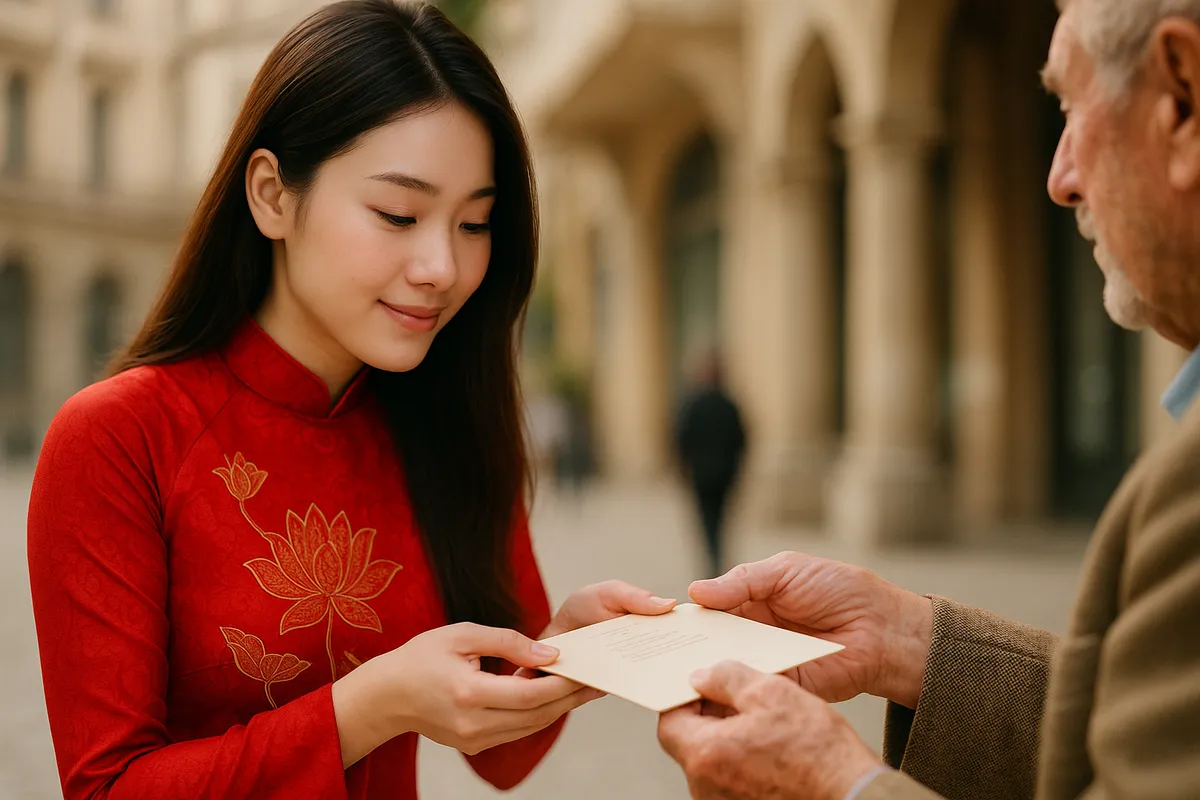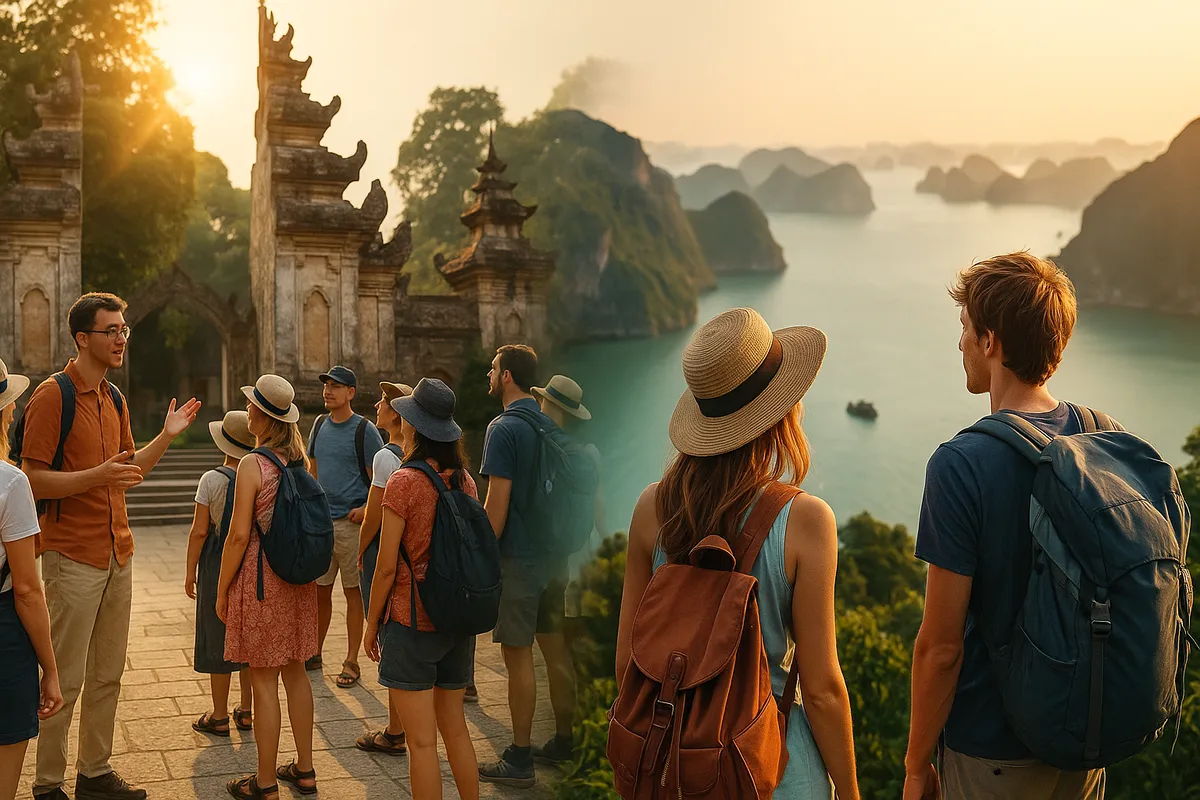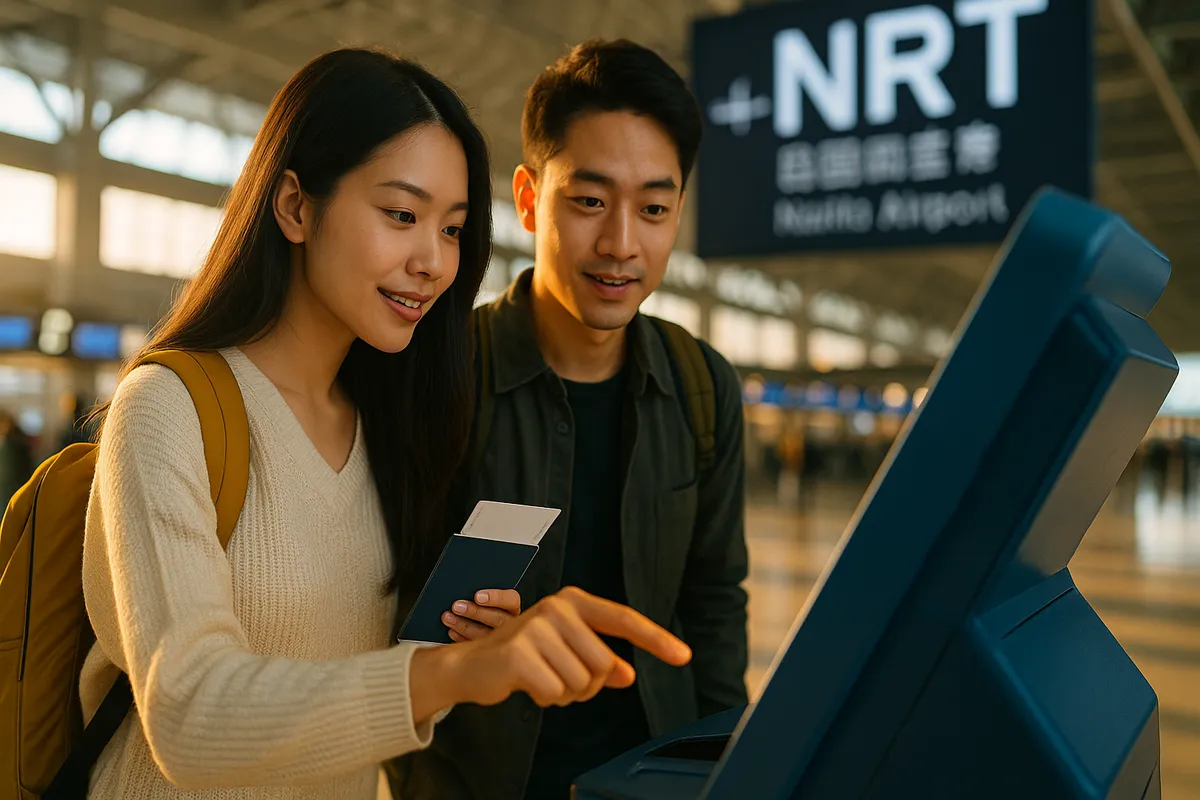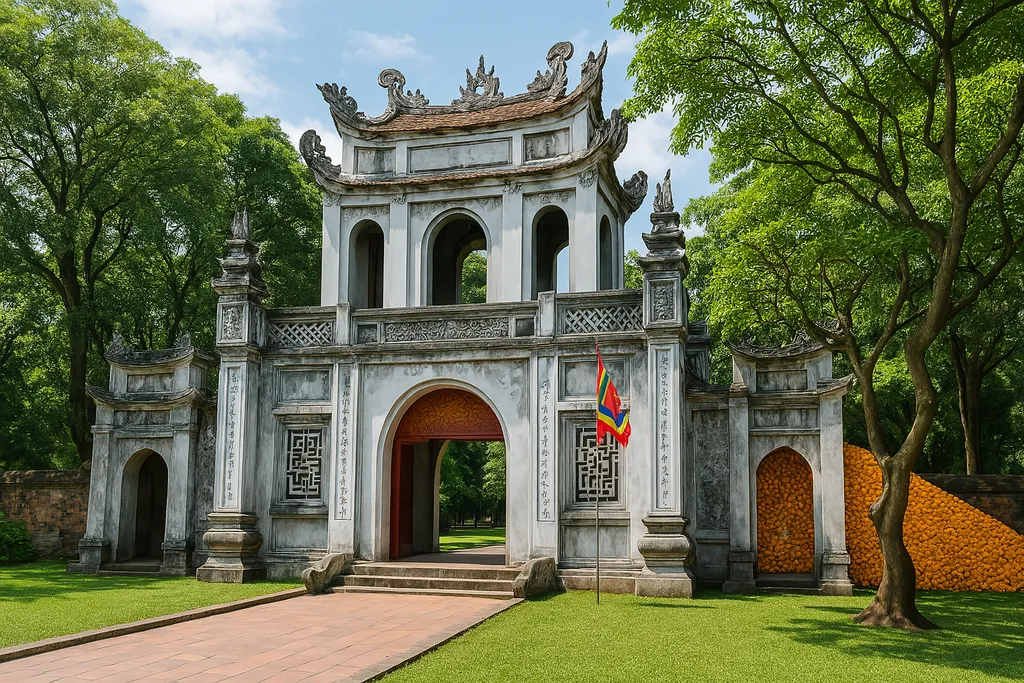Tips to preserve Vietnamese culture when traveling abroad
- Sunday, Jun 15, 2025, 08:57 (GMT+7)
Tips to preserve Vietnamese culture when traveling abroad
Travel is not merely a personal journey of discovery. For Vietnamese citizens going abroad, each trip becomes an opportunity to represent and promote the cultural identity of their homeland. In an increasingly connected world, every gesture, every word, and every interaction from a Vietnamese traveler contributes to the perception of the nation. Preserving Vietnamese culture while traveling abroad is not just about maintaining traditions, but about embodying pride, respect, and a thoughtful presence in the global community.
Public behavior is often the first and most visible expression of cultural background. Unfortunately, some Vietnamese tourists have received criticism for speaking loudly, cutting lines, or behaving impatiently in airports and public spaces. These habits may be acceptable in familiar environments but are often frowned upon in international settings. Once outside the borders of the country, individual actions no longer reflect only personal choices but also represent a broader cultural identity. Respecting rules, staying composed, and practicing courtesy are essential to making a positive impression.
Language is a powerful vehicle of culture. While using foreign languages for communication is necessary, incorporating elements of Vietnamese into conversations can be a subtle yet effective way to share identity. Teaching others simple greetings like "xin chào" or "cảm ơn" often sparks curiosity and initiates meaningful cultural exchanges. These small interactions can leave memorable impressions and open doors for conversations about Vietnamese heritage.
Cuisine offers another deep expression of cultural roots. It is natural for Vietnamese travelers to crave familiar flavors while abroad, but refusing to try local dishes entirely creates a missed opportunity. The key is to maintain a balance. While enjoying Vietnamese meals, travelers should also be open to local food, viewing it as a part of understanding another culture. At the same time, speaking about the origin and richness of Vietnamese dishes such as phở or bánh mì can provide insightful comparisons and invite others to explore Vietnamese gastronomy with interest and respect.
Clothing is often overlooked, yet it carries strong cultural signals. When visiting religious sites, historic locations, or attending formal events, clothing should reflect cultural sensitivity. Overly casual or revealing outfits can come across as disrespectful. Dressing modestly, cleanly, and appropriately for the setting demonstrates good judgment. In many cases, Vietnamese travelers have been complimented on their attire, leading to engaging discussions about traditional outfits like áo dài or khăn rằn. These moments offer natural opportunities to present a deeper understanding of Vietnamese culture.
Behavior at tourist attractions deserves special attention. Actions such as climbing on statues, posing inappropriately in sacred areas, or touching artifacts are often seen as offensive. Before visiting such places, it is vital to research local customs and behavioral expectations. Following simple rules like keeping noise to a minimum, avoiding flash photography, and refraining from physical contact with objects shows respect. These details may seem small but play a significant role in shaping how Vietnamese visitors are viewed.
One lesser-known but meaningful way to express Vietnamese culture abroad is through symbolic gifts. Bringing small tokens such as handmade souvenirs, postcards of Vietnamese landmarks, or locally packaged sweets can create positive cultural exchanges. These thoughtful gestures often spark curiosity and leave lasting impressions. A traveler who gives a small, culturally meaningful gift not only creates a connection but also plants seeds of interest in Vietnam as a destination.
Navigating sensitive cultural conversations requires emotional intelligence. When asked about challenges in Vietnam such as pollution or traffic, some travelers become defensive or try to avoid the subject altogether. A more constructive approach is to respond with honesty and perspective. Acknowledge the challenges while highlighting progress, resilience, and cultural depth. This strategy reflects maturity and helps reshape impressions in a more accurate and respectful way.
Staying composed during unexpected situations also reflects cultural maturity. Whether facing discrimination, misunderstandings, or service issues, how travelers respond often determines the outcome. Overreactions or aggressive complaints rarely lead to positive results. On the other hand, calm dialogue and cooperative problem-solving demonstrate poise and credibility. There have been many cases where Vietnamese travelers handled difficult moments with grace, earning respect and appreciation from hosts and service providers.
Social media also plays a powerful role in shaping perceptions. Posting photos, reviews, or reflections is second nature to many, but the tone and intent of these posts matter. Content that is respectful, constructive, and culturally sensitive helps promote a positive image. Negative or mocking posts, especially those that misrepresent or disrespect the local culture, can lead to backlash and damage both individual and collective reputations. A mindset of learning and sharing, rather than judging, is more effective and sustainable.
Preserving Vietnamese culture while abroad is not about grand gestures or formal presentations. It is found in everyday actions such as how one walks, speaks, dresses, gives, responds, and shares online. Together, these expressions form a portrait of what it means to be a modern Vietnamese citizen on the global stage. When each traveler becomes aware of their role as a cultural representative, travel transforms from a personal journey into a meaningful contribution to Vietnam’s presence in the world. And that is when culture truly crosses borders with dignity, clarity, and pride.

 CHECKIN.VN
CHECKIN.VN








Share on